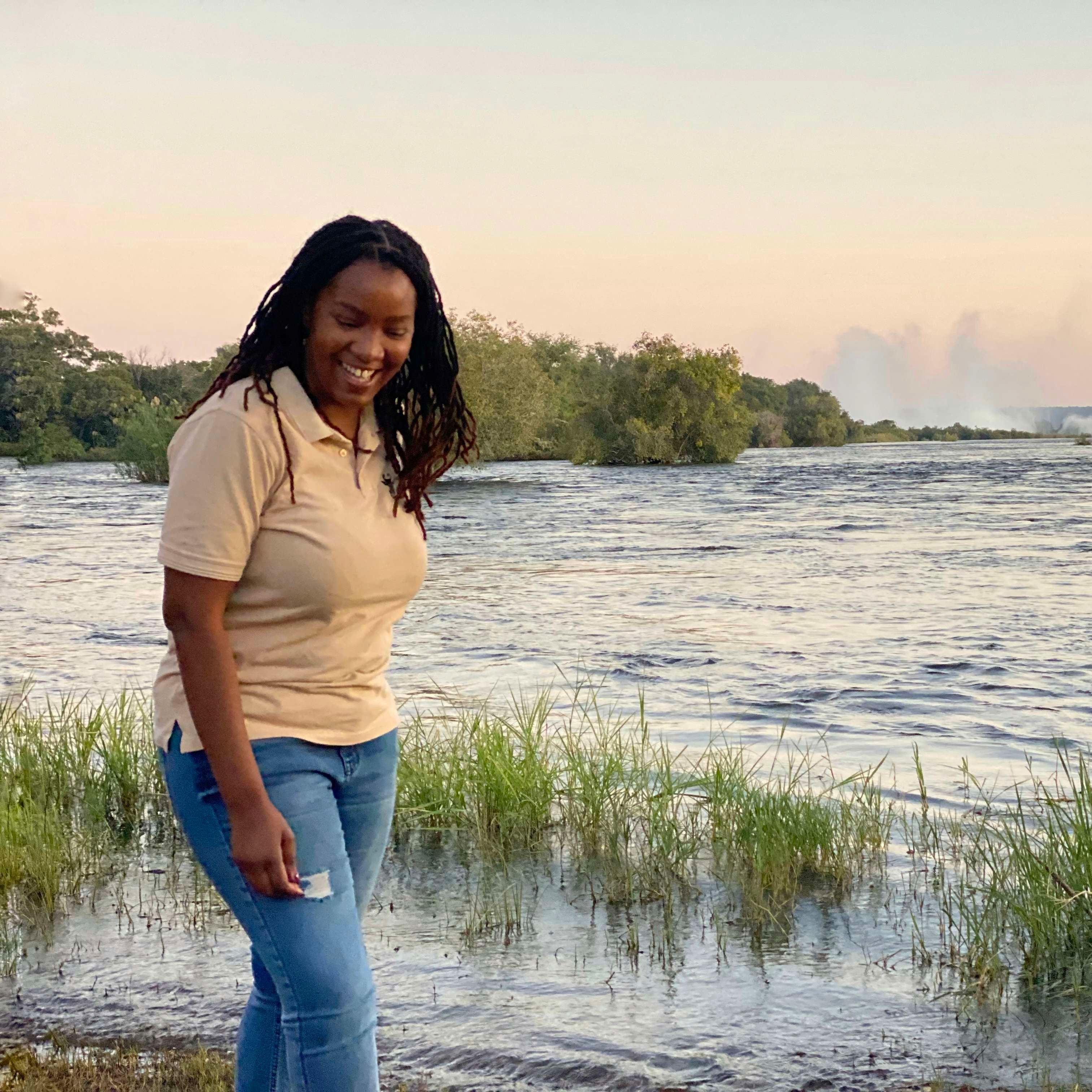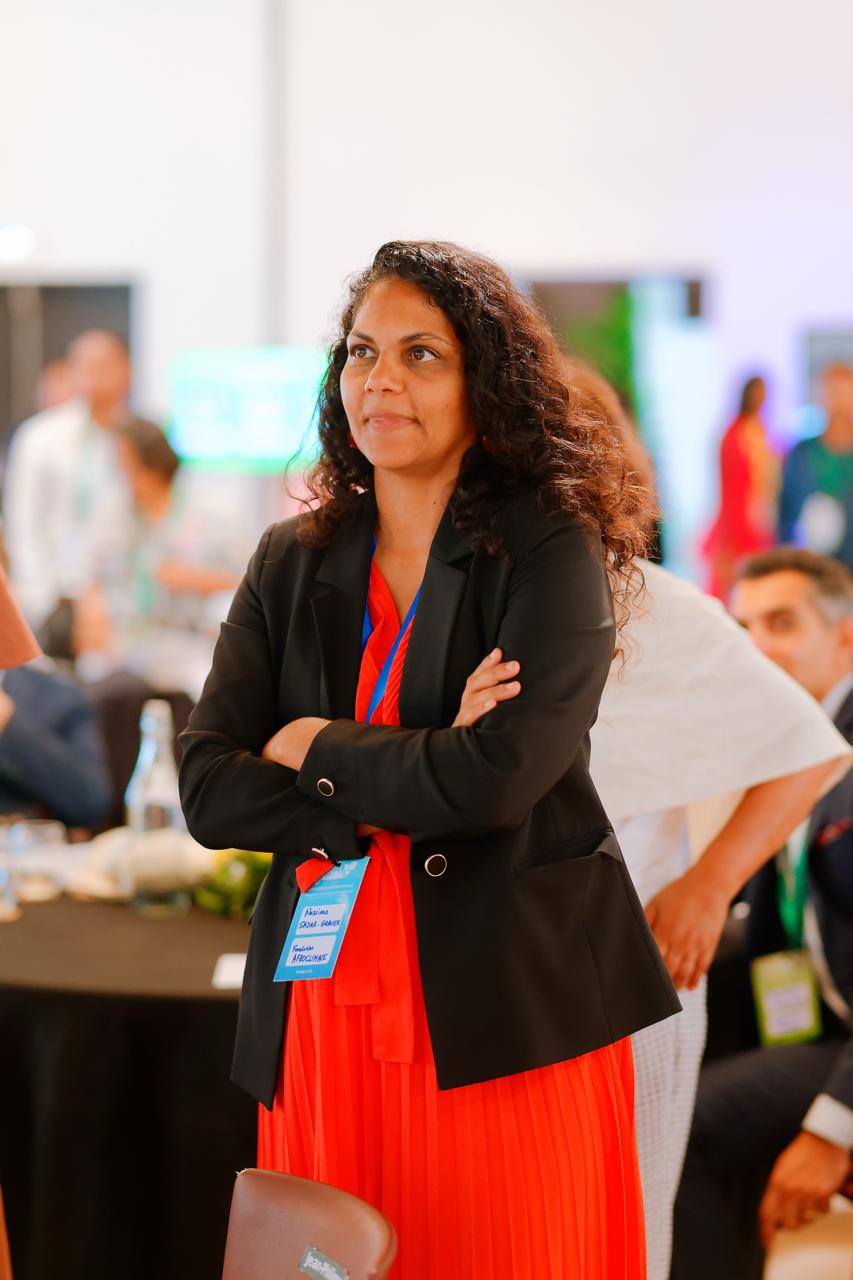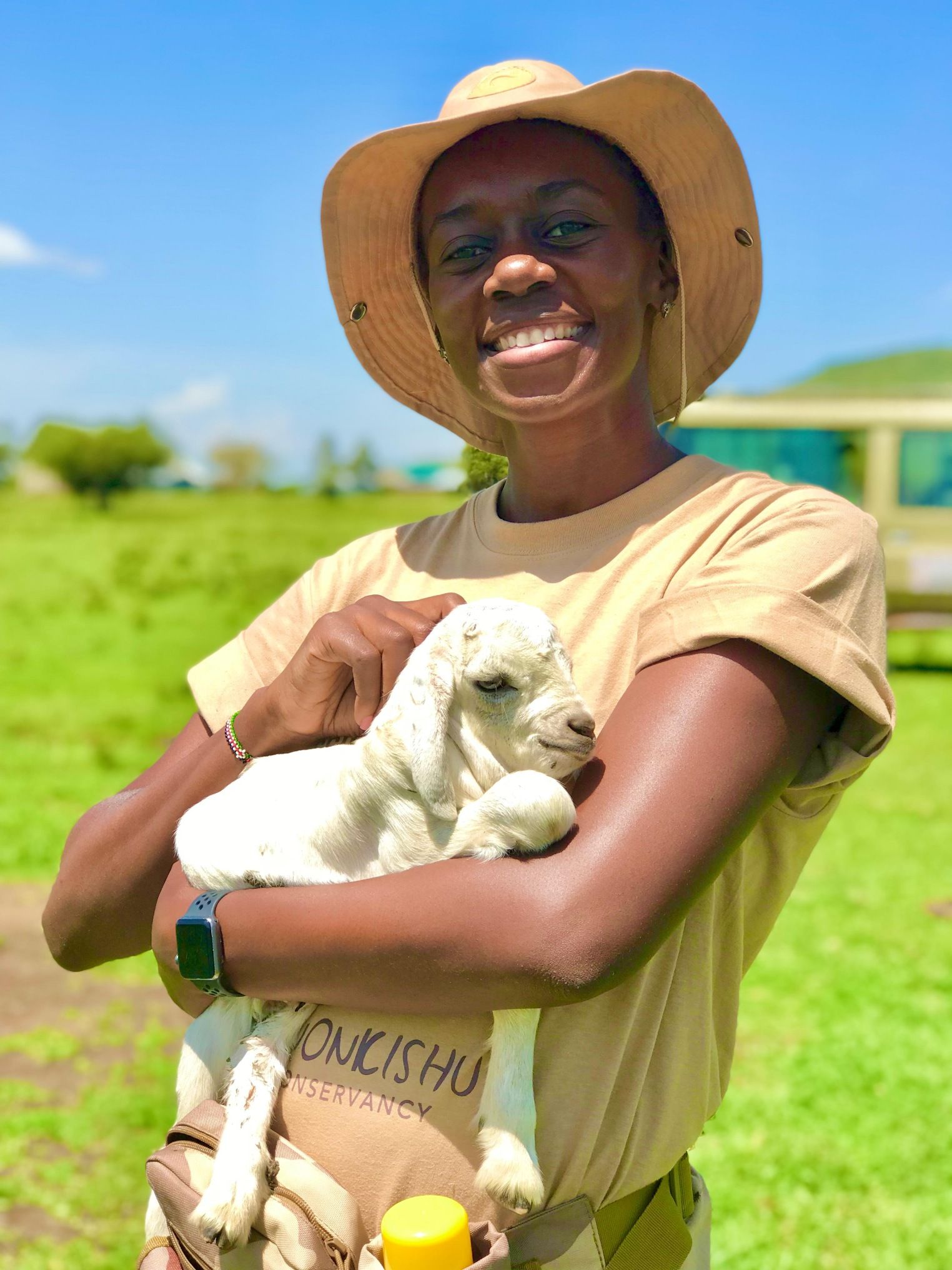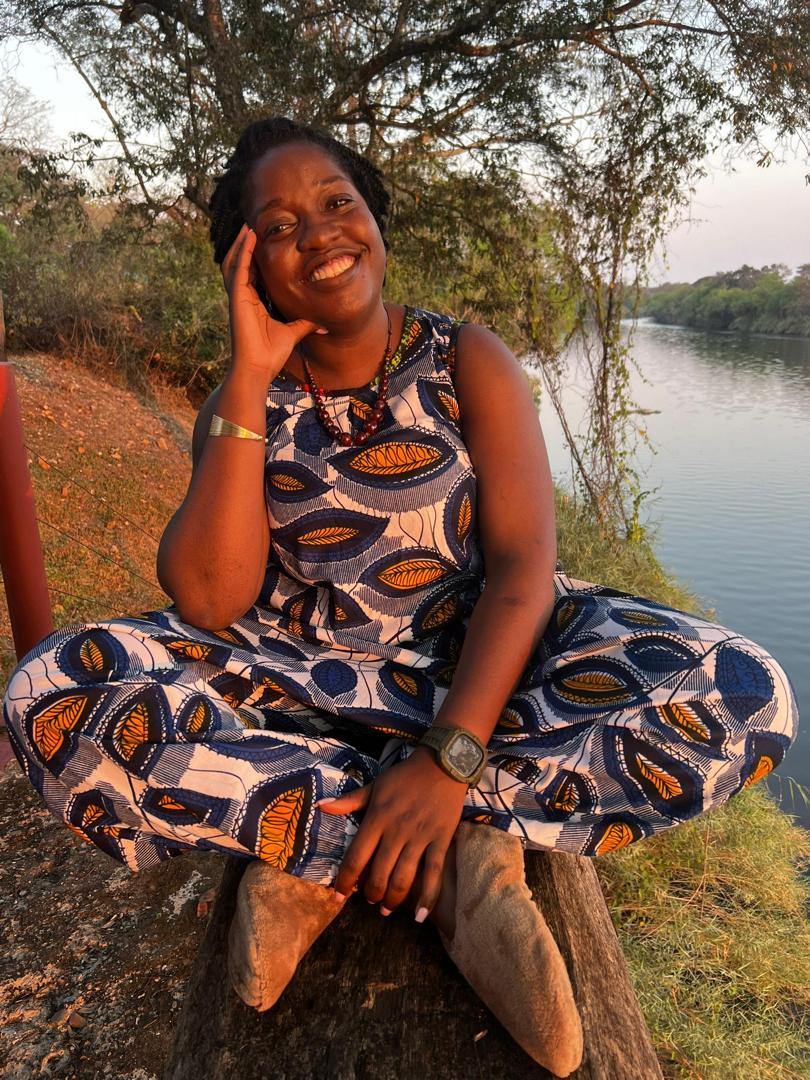Early in my career, I was idealistic about what conservation on the African continent looks like. As I've evolved, I've learned that reality differs from the general discourse and what we are taught in school.
Chanda Mwale believes that kicking the hornet's nest every once in a while is one surefire way to drive change, particularly in a sector that needs it most.
The natural resources specialist is passionate about seeing Africa chart its path to sustainable development using its natural resource capital whilst ensuring value is created and captured.
Chanda currently serves as the Executive Director at the Wildlife Producer's Association of Zambia (WPAZ), sits on the advisory board for the African Leadership University School of Wildlife Conservation, and is a 2022 Women for the Environment Africa fellow.
She shares insights from her journey with Damaris Agweyu.
Chanda, is there a meaning behind your name?
Interestingly, I started asking this question in my teens. In my mind, my name had to mean something. I wanted it to mean something. And so, in speaking to different people, I discovered that in one Zambian tribe, Chanda means a fort or fortress. I doubt my parents had this in mind when they named me, but as I started to reinvent myself in adulthood, I felt that this meaning was a perfect fit.
Because you see yourself as a fortress?
Life has certainly felt that way for me. I'm a firstborn daughter and first granddaughter. That has come with a lot of responsibility where I have had to stand tall and lead from a very young age.
And in many ways, I am strong, but I am not always happy to be called strong because sometimes people expect you to take a lot of crap. I've struggled with that over the last couple of years.
So even when you are struggling, you are still expected to have your game face.
Exactly! I have a friend who likes to call me strong. And I always tell them not to because even when I share a personal struggle, this friend’s response is, "you're strong; you'll be fine". I mean, that is the worst response ever! It belittles my struggle and invalidates my pain.
I definitely wear my game face a lot less nowadays. My daughter is the only person I feel I owe it to. Because she's pretty young and watching her mother crumble too often would not make for an ideal childhood. So I try to model a healthy balance. But with everyone else, I've made peace with the fact that I have no obligation to be “strong”; the pressure can be crippling.
Even though I view myself as a strong woman, I am working on drawing a line that protects me from situations that are too much to handle. And that's OK.
What's your origin story in the world of conservation?
I absolutely loved geography in high school, my friends still tease me about this. While trying to figure out what to study at university, whisperings around environmental impact assessment and environmental management were bubbling under the surface. So I looked up certain schools and found a degree course in geography and environmental management. I went to study this in South Africa.
After completing my degree course, I returned home and got my first job in solid waste management. I did that for two years before moving into consultancy, working for a mineral exploration company. I would put together environmental impact assessment briefs or environmental management plans for companies. But I soon discovered that many clients wanted those documents to merely check a box and get approvals to mine—they didn't care about the repercussions or bother with mitigation. It felt like I was enabling environmental degradation, which didn't sit right with me. I switched jobs when an opportunity with WWF came up. This time, I went into water management. Six years later, I moved into wildlife.
My tertiary foundation in geography and environmental management was broad enough to allow me to pivot across the spectrum. I don't need or want to be boxed into anything. I believe the greatest skill anyone can have is the ability to adapt and apply themselves to what is before them.
Today you work in a somewhat non-traditional sector of conservation.
Early in my career, I was idealistic about what conservation on the African continent looks like. As I've evolved, I've learned that reality differs from the general discourse and what we are taught in school. This has led me to do what I now choose to do: pushing the game ranching and game farming agenda.
Many in the conservation space may think that breeding animals and killing them for venison that people eat is despicable. To clarify, game ranching is more than simply animal breeding and killing for venison, it can be a key contributor to protecting habitat, creating jobs, ecotourism ventures, and granting communities user rights over resources. And for conservation in Africa to work, it needs social capital. Part of that is creating decent jobs and generating value while maintaining principles of sustainable utilisation.
In the Zambian culture, the consumption of game meat is a huge part of who we are. There was always game meat in my father's fridge, and at times that meat was illegally harvested—a reality in many Zambian homes. In my work, we've figured out legal ways to harvest this meat and put it on people's tables without decimating wildlife populations in the national parks, all while creating jobs and protecting habitat. So there's space and room to do things differently.
It’s about challenging the status quo. And it’s one of the reasons I decided to pursue an MBA.
Tell me about that.
After completing my MSC, I signed up for an MBA with Africa Leadership University School of Business. Part of my reason for doing this was my late mother, my hero. One of the last things she did academically was an MBA. When she was studying for it, I was studying for my primary school exit exams. We often studied together, and she taught me the importance of applying myself and working hard. I wanted to follow in her footsteps.
And as I've progressed in my career, I've realised that we need to do things differently. Because, at its basic level, capitalism is the critical driver of habitat degradation. And private-sector thinking is entirely different. Yes, grant money is needed for conservation work, but could we be smarter with this money? Manage it differently?
My MBA helped me to build a completely new set of skills. It also allowed me to hang out with people in the private sector, where it's about numbers, effectiveness, creating value, and efficiency. Can we learn from them and apply some lessons to conservation and the environment sector? Africa needs that because we've been conserving, but things are not improving—something needs to change. So can we be brave and innovative enough to question things and find alternative solutions?
You obviously welcome a good challenge.
I've recognised that I like to start fires. I am learning to become comfortable with that. I enjoy starting responsible fires, hopefully resulting in a change of perspective. And my ability to speak up and question also gives others the courage to do the same.
But there has to be a balance because you can't be the only person constantly putting their neck on the chopping block. I've learned to pick my battles.
Has questioning the status quo primarily served or hindered your progression?
My honest answer is I don't know. But this self-awareness journey enabled by WE Africa has helped me remember that that is part of who I am, so I am more deliberate about the spaces I choose to occupy and the fires I decide to start. Life has taught me that context matters. So in specific contexts, questioning the status quo has led me to flourish. But sometimes, I've pulled back, shrunk myself, and left situations, jobs even. If I don't believe it's worth it, I don't question it. I walk out. Quietly.
In an article you published on Medium, you wrote, "It is clear that in order to succeed, the environmental movement requires a sisterhood". Can you unpack that statement relative to your journey?
Because the environmental space is male-dominated, women have not had it easy. It's almost as if we've had to act like men and shed our femininity to be accepted and deemed credible. So we come into these spaces jostling and scrambling for acceptance. This has created very unhealthy conditions for women.
When I started out in this space, I felt the toxicity. I like to have pretty nails. I sometimes like to wear cute clothes. I don't wear makeup all the time, but sometimes I want to. At the start of my conservation career, I seldom showed up as myself because I didn't want to stick out like a sore thumb. In certain spaces, it felt as though you would not be taken seriously if you were not wearing chinos, boots, and a khaki shirt. I mean, what a joke!
We have to be aware of where the toxicity is and how it shows up. And then we must do our best not to pass it on to the next generation. It’s almost like parenting.
It's been easier for my generation of women because those who came before us have broken the mould for us. They've come into their own and taught us that it's OK to be yourself. However, we cannot take for granted what it means to be a woman in a space that is, in many ways, not made for women.
So even in practising authenticity, we need the wisdom to be strategic. If I know that I am meeting a group of farmers who might not take me seriously if I show up in a sundress, I won't wear a sundress to that meeting. And that doesn't make me any less.
The ability to contextualise things without taking away from your core is important. You need to understand how the world works but constantly putting on a show gets exhausting. And so you need places where you can retreat and be who you are without judgment – the sisterhood.
It all comes down to modelling a new way of doing things and bringing others along. This could mean saying, “I'm unable to come into work today because my daughter is sick”, instead of “I'm taking a personal day”. That nuance makes a huge difference because you are creating space for others to feel safe and be authentic.
Where do you feel safest?
When I am with my girlfriends. We are thick as thieves. They see me. They know me. I feel loved and cared for as I am. We've made mistakes and hurt each other, but we still show up for each other. I love them hard, and they love me back. Hard.
What is your definition of success?
Because I've lived a life bound by the expectations of many, my idea of success is freedom.
And freedom, for me, is multilayered. So on a personal level, it's the ability to be who you are. On a professional level, it's the ability to do what you believe in without constraints and strain. In the environmental space, it's the ability to think freely and break with tradition where need be. And if we view it from the grassroots level, it's giving people the freedom to choose what they want to do with their natural resources and trust that they know best what their definition of conservation is.
***
This interview is part of a series profiling the stories of the 2022 WE Africa leadership programme fellows, African women in the environmental conservation sector who are showing up with a strong back, soft front, and wild heart.





